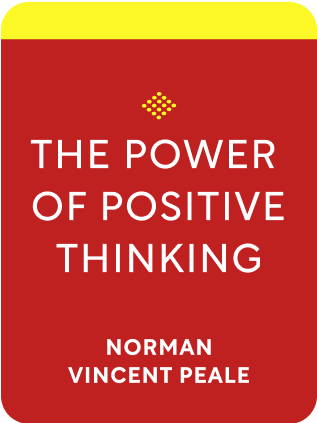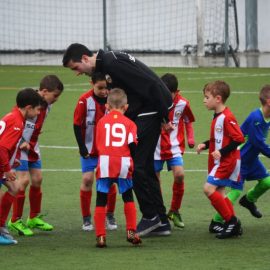

This article is an excerpt from the Shortform book guide to "The Power of Positive Thinking" by Norman Vincent Peale. Shortform has the world's best summaries and analyses of books you should be reading.
Like this article? Sign up for a free trial here .
Do you feel low on energy for no apparent reason? Do you constantly feel tired, struggling to summon enough energy to enjoy life and do what needs to be done?
According to Norman Vincent Peale, the author of The Power of Positive Thinking, having low energy is often the result of what’s going on in your mind—your thoughts affect how you feel physically. When your thoughts tell you you’re tired, the body accepts this and feels tired. But when your mind and thoughts are engaged and interested in what you’re doing, you have the energy to keep going indefinitely.
Here is how thoughts can drain your energy and what to do to regain it back.
How to Access More Energy
Thoughts involving faith can help you gain more energy because they bring you feelings of endless support and power, fueling you. For example, a friend of Peale goes to church regularly to “recharge his batteries.” The idea is that God is the source of all energy; maintaining contact with God taps us into all this energy, giving us access to the very same energy used to create the world.
When we’re aligned with God in our thoughts, we have access to this free-flowing energy. When our thoughts are not aligned with God, we feel tired and depleted. It’s like an electric clock plugged into a wall. As long as it’s plugged into the constant stream of electricity, it functions perfectly. But when it’s unplugged, it stops.
The principles of Christianity, when tapped scientifically, can help you create an endless supply of energy in mind and body. A sound spiritual life brings energy; there’s no need ever to suffer from depleted energy.
Peale had a discussion with a medical doctor about a man they both knew. This man had many responsibilities and obligations, but never seemed tired; rather, he kept taking on new responsibilities and worked with ease and efficiency. When Peale expressed worry that this man’s pace might lead to a breakdown, the doctor said there was no danger of that. He said hard work doesn’t drain energy; emotional upheaval does. This man’s seemingly boundless energy came from his emotional balance and his religious beliefs. His religion taught him how to prevent leaks of his energy and power, so it always remained intact.
Finding God’s Rhythm
Our physical condition is determined by our emotional condition, and our thoughts determine our emotional state. People who are capable of immense amounts of work, fueled by seemingly endless energy, are in touch with “the Infinite,” or God. They are in harmony with nature and with Divine energy.
These people may not be stereotypically “religious,” but they are emotionally sound and lack fear, resentment and other negative thoughts that can throw off their inner balance.
Thomas Edison’s wife shared that Edison could work long hours and then rest easily. He’d awakened recharged and refreshed, ready to get back to work. She attributed his ability to rest so completely to his harmony with God and nature. He had no emotional instability and lived in harmony with the universe—and many secrets of the universe were revealed to him.
Practicing the creative principles of Christianity helps you get in sync with God’s rhythm, not the unnatural tempo of modern life that can deplete your energy. When we’re not in tune with God’s rhythm and get caught up in the hectic pace of life, everything is sped up and we feel tired and overwhelmed. But when we’re in tune with God’s rhythm, our inner tempo is flowing as it should and energy flows freely to us.
You can get in touch with the proper tempo of life by listening to the sounds of nature, or by hearing the word of God at church, but you can also find it in your daily life. The author uses the example of finding the tempo of a factory. A friend who ran a plant told him the best workers were in harmony and rhythm with the machines they worked with. Those who found this rhythm weren’t tired at the end of the day. By finding the rhythm of the machine, these workers tapped into God’s rhythm.
To have energy and avoid exhaustion, find the rhythm of God in everything you do. To do this, relax your body and mind. Peale suggests you pray to God, understanding that He is the source of all energy and knowing you can draw energy from God’s unending source.
Fighting a Lack of Interest
Sometimes people are tired and have low energy because they’re not interested in anything. They are so wrapped up in their personal concerns that nothing outside of themselves moves them. You lose energy when life is dull and your mind is bored.
To fight this, get interested in something worthwhile outside of yourself and throw yourself into it. When you lose yourself in something bigger than you, you’ll have more energy.
Getting Rid of Guilt and Fear
To live with unbridled energy, you have to get your mind straight and fix your emotional faults. The great football coach Knute Rockne insisted that all his players have calm emotional lives. Every member of his team had to have good feelings for fellow players. He felt that hate blocks energy and his players wouldn’t be up to par until they got rid of that negativity.
The people with the least amount of energy tend to have deep emotional and psychological issues. Healing these conflicts is imperative to living with energy.
Guilt and fear drain your energy, making you tire quickly and lose the resources to do your work, but faith can help disintegrate these blockages and reopen your channel to receive power and energy.
Fighting Staleness
Another cause of low energy is staleness—feeling a sense of monotony that undercuts the freshness you need to do your work successfully. When you feel bored and stale, it takes more energy to do things you used to do easily
It is possible to regain your zest for life and personal power again by getting back in touch with God, the Bible, and nature.
A professor had lost his interest in and enthusiasm for teaching. The board of trustees gave the professor a 6-month leave of absence, stipulating that he go to a place of quiet and rest, focusing on regaining his strength and energy. He was only allowed one book—the Bible. He was told to walk, fish, garden, do manual labor, and read the Bible, memorizing passages to saturate his mind with positive ideas. At the end of the 6 months, the professor found renewed faith, peace and power. All his energy returned along with his zest for life.

———End of Preview———
Like what you just read? Read the rest of the world's best book summary and analysis of Norman Vincent Peale's "The Power of Positive Thinking" at Shortform .
Here's what you'll find in our full The Power of Positive Thinking summary :
- That there is no problem or obstacle you can’t overcome with faith, positive thinking, and prayer
- The practical techniques of applied Christianity
- How to take control of the events in your life rather than be directed by them






